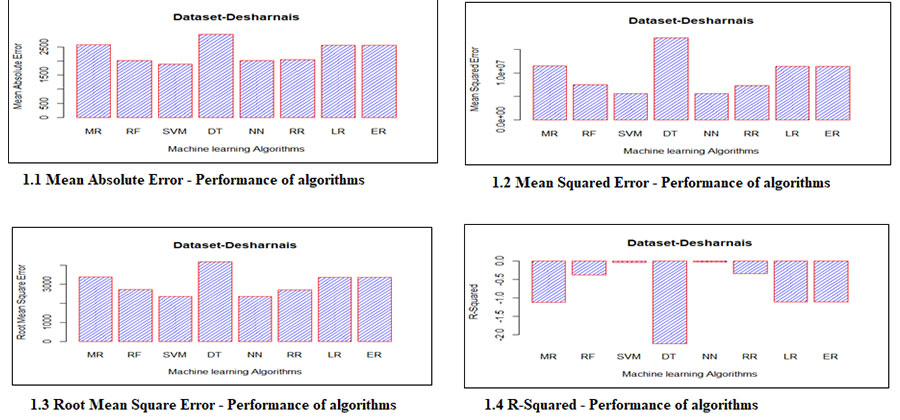


Indian Journal of Science and Technology
Year: 2020, Volume: 13, Issue: 21, Pages: 2094-2103
Original Article
A G Priya Varshini1∗, K Anitha Kumari2
1 Assistant Professor, Information Technology, Dr.Mahalingam College of Engineering and Technology, Pollachi, Coimbatore, India. Tel.: +91-9444899863
2 Associate Professor, Information Technology, PSG College of Technology, Coimbatore, India
∗Corresponding author:
A G Priya Varshini
Assistant Professor, Information Technology, Dr.Mahalingam College of Engineering and Technology, Pollachi, Coimbatore, India.
Tel: +91-9444899863
Email: [email protected]
Received Date:10 May 2020, Accepted Date:10 June 2020, Published Date:22 June 2020
Background/Objective: In Software Effort Estimation (SEE), predicting the amount of time taken in human hours or months for software development is considered as a cumbersome process. SEE consists of both Software Development Effort Estimation (SDEE) and Software Maintenance Effort Estimation (SMEE). Over estimation or under estimation of software effort results in project cancellation or project failure. The objective of this study is to identify the best performing model for software Effort Estimation through experimental comparison with various Machine learning algorithms. Methods: Software Effort Estimation was addressed by using various machine learning techniques such as Multilinear Regression, Ridge Regression, Lasso Regression, ElasticNet Regression, Random Forest, Support Vector Machine, Decision Tree and NeuralNet to recognize best performing model. Datasets used are Desharnais, Maxwell, China and Albrecht datasets. Evaluation metrics considered are Mean Absolute Error (MAE), Mean Squared Error (MSE), Root Mean Square Error (RMSE) and R-Squared. Findings: Experiments on various machine learning algorithms for software Effort Estimation determines that Support Vector Machine produced the best performance comparatively with other algorithms.
Keywords: Machine learning; software effort estimation; regression models; classification models
© 2020 Priya Varshini, Anitha Kumari. This is an open access article distributed under the terms of the Creative Commons Attribution License, which permits unrestricted use, distribution, and reproduction in any medium, provided the original author and source are credited.
Published By Indian Society for Education and Environment (iSee)
Subscribe now for latest articles and news.